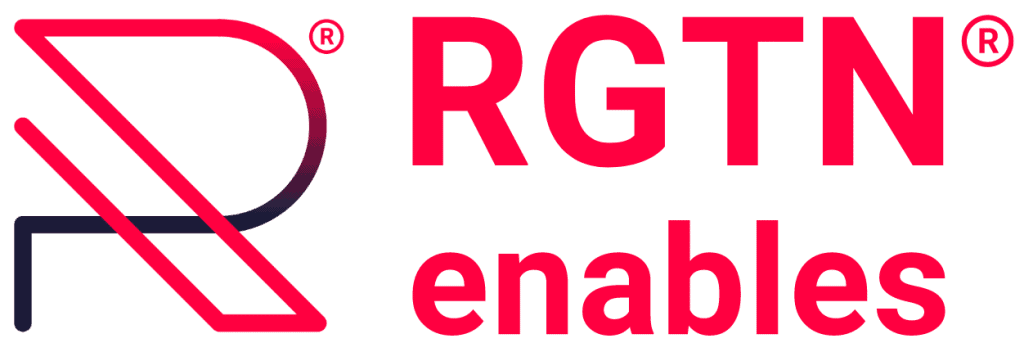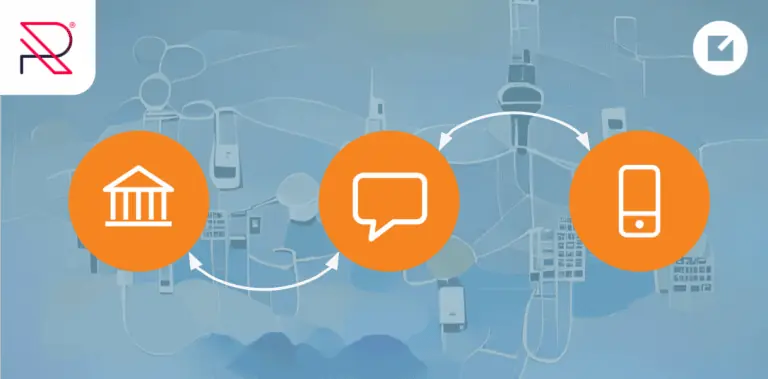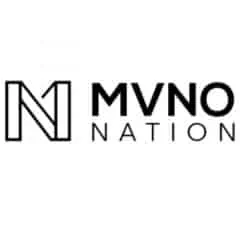
Gain the freedom and independence to create, develop, and expand your business offerings on your budget, within your timeframe, and according to your specifications.
In recent months, RGTN, a telecommunications enabler from Maastricht in the Netherlands, decided to expand its business communications portfolio by adding P2A SMS (“person to app” texting such as chatbots, marketing campaigns, and appointment confirmations) to the traditional services, such as hosted PBX or SIP trunking, that its sister company Redworks had been providing for many years.
Redworks has been a PortaOne customer for more than a decade, offering UCaaS (unified communications as a service) via PortaSwitch – a single platform that combines a telecom billing system called PortaBilling with the VoIP softswitch capabilities of PortaSIP. Through PortaBilling, they had already long been able to apply flexible real-time charging for voice calls. Now it was the time to use that power for the billing of SMS transmission.
RGTN’s path to success
With this evolution, RGTN essentially became an enabler of connection between SMS and cloud apps and MVNOs in their own right. They obtained their own mobile network code from the International Telecommunication Union (ITU) – a move that placed them in the same ranks as mobile carriers such as Vodafone or T-Mobile – and then connected via the SS7 system (a legacy telecom network protocol) with other mobile operators. In other words, they created an SMS gateway that allows text messages to be transmitted between the end user’s mobile phone (connected to a “real” mobile carrier) and a given Internet application or CPaaS system that is running a marketing campaign, survey, appointment reminder system, or whichever P2A SMS system that is relevant to them.
Meanwhile, RGTN monetized the service by connecting the SMS gateway to PortaBilling, which makes sure that every message is authorized and charged to the customer, whether that is an individual user with a mobile phone, or, in the case of RGTN, the owner of the CPaaS system or sponsor of the marketing campaign that is delivering the SMS.
In mid-2022, RGTN tested the performance of worldwide high-volume SMS texting over their network – with promising results. In fact, the company reported that 80% of all global destinations were reached successfully with the high-volume traffic through their enhanced network and SMS gateway. These results show that telecom operators worldwide are able to correctly route an SMS sent to RGTN’s phone numbers to RGTN – and deliver a reply to the original subscriber.
Following this initial test, steps are being implemented to connect the remaining 20% of non-reached destinations via alternate routes.
Just how much is a “large volume” of SMS? RGTN CEO Leslie Herps says that, while they have just started out, his average customer carries 2 to 5 million Class A or 1 to 2 million Class B SMS per month. “So, a few of those customers easily add up to many millions,” he says.
Klaus Haertel, Director of Strategic Alliances and Channel Sales at PortaOne, notes that receiving SMS can be more challenging than many businesses expect. “It is a bit more difficult, because any network in between the sender and receiver needs to ’know’ that the target number supports receiving SMS,” he says. By enabling this incoming traffic, RGTN is helping CPaaS providers capture revenue from both sides of the business-to-customer conversation.
“We have several customers who are looking for the best price-quality ratio – a golden deal – and RGTN is very strong in this,” says Katrin Oskomić, CEO of Redworks. “As an enabler, RGTN can determine for itself what the best business deal will look like and is able to bind large accounts with its flexible options both for incoming and outgoing SMS services.”
How RGTN is set up to offer P2A services
While MNOs traditionally have their own network with their own P2P SMS and so could offer P2A, most do not. Why? They are simply not set up to be able to do it. MNOs are designed to serve the end user or subscriber, not applications or software companies. And that is where RGTN is leaping in to close the gap. Because they serve companies like the world’s largest CPaaS players, those organizations can then enable B2C companies like Tesla, BMW, McDonald’s, and Uber to build and execute customer-facing apps that use SMS as their communication medium.
Businesses like these are demanding two-way voice and SMS to meet the needs of today’s consumers, and RGTN has the capabilities to meet those industry demands. Even better, RGTN understands their customers’ needs and can custom-design solutions based on the specific CPaaS provider’s unique wishes – and at a very compelling price. This makes RGTN the perfect proxy between the complex and inflexible MNO setup and their own cloud infrastructure, APIs, and applications.
RGTN is making it much easier for these companies to establish a connection to exchange SMS over the Internet than it would be if they tried to create those connections directly with their MNOs. RGTN has removed many of the former complexities and is offering a sophisticated communication service in a simple way – specifically, via API or an Internet-based protocol such as SMPP.
Why SMS is making a comeback
With the technological advancements in smartphones and the availability of countless phone, web, and desktop apps for communication (WhatsApp, Facebook Messenger, Zoom, and the list goes on…) it seemed for a while that “Short Message Service” had fallen by the wayside.
Yet, recently, many companies and brands have discovered the benefits of using SMS to create value touchpoints and to communicate with more of their customers.
First and foremost, SMS is universal. No matter what type of mobile phone you use, you nearly always have access to SMS, and so can send and receive messages.
And while modern smartphones may seem to be ubiquitous, there are many markets across the world where a significant share of the population – or even a majority – still use cell phones or “feature phones” with limited capabilities. These markets include nations such as India, Thailand, Indonesia, and Nigeria, to name just a few.
Even in wealthier countries, different demographics may use mobile phones differently. Seniors in the United States, for example, are less likely to have a smartphone than a cell phone. Additionally, the ability to send and receive SMS comes automatically with almost all mobile phones, meaning users do not have to download any additional software or apps.
Last but not least, SMS is easy to use, so there are few to no obstacles to educating someone on using the service, ensuring greater usage and response rate.
For all of these reasons, companies are growing to understand that SMS gives them the ability to confidently communicate with a broader range of their customers.
Where P2A plays a role
RGTN’s Leslie Herps thinks that now is the time to choose the fast-growing route of P2A inbound messaging. “SMS is as old as Methuselah!” he says. “And traditional P2P messaging is as good as dead. A2P is booming, OTP passwords and such, but suffers from extreme competition. There is no market for us there. Not interested. What’s left? P2A!”
An important driver in the rise of the A2P (Application to Person) SMS market is the growing use of 2FA (two-factor authorization) authentication codes. This is when, for example, a bank will send a client a text message with a special code they can use to log into their account online.
A2P is also being used for mobile marketing, appointment reminders, large-scale alerts and notifications, voting, and surveys. So, turning this one-way street into a two-way street is the next natural step in this SMS evolution. Welcome: P2A.
Person to Application SMS is when a person sends a text to an application. So, when you receive an automated reminder for an appointment, for example, you can reply to confirm you can still make it. Or, you could respond to a delivery notification with a request for a different delivery day, or instructions on where to leave a package.
Other examples where P2A SMS can be useful include:
- TV voting campaigns
- SMS lottery campaigns
- Competitions, surveys, and alerts
- Subscriptions
- Two-factor authorization (2FA)
- Delivery and appointment notifications
What this means for RGTN
RGTN is now able to cover a wider range of communication needs for companies that need “bulk” SMS—for example, CPaaS providers, payment processors, or other businesses that in turn offer services to consumer-based companies such as Zara, Tesla, and BMW.
This, combined with their ownership over their network equipment, has repositioned them in the market as network enablers, increasing their value and taking them from a simple telephony provider to an end-to-end communications service provider. And that means RGTN is no longer subject to the high churn that comes when you have to compete only on price.
Meanwhile, RGTN’s customers – those CPaaS providers and other such businesses – now have a better selection of SMS-enabled phone numbers, and so a larger reachable market.
For the ultimate beneficiaries of this evolution – specifically, those companies like BMW that execute customer communication via SMS – it not only brings an additional form of communication with which to reach their end users, it has also created a way to gain a better understanding of those customers: what they want, what they need, and how they function on a day-to-day basis.
How PortaOne played a part
RGTN has relied on PortaSwitch for over a decade, and the platform played a key role in the company’s growth into P2A—specifically, its integrated PortaBilling platform, which handled billing for the SMS services. In order to ensure correct accounting and charging, PortaBilling authorizes the transactions (the sending and receiving of messages) and charges it to the right customer account.
PortaBilling is a flexible billing platform with an open architecture that is developer-friendly: it is the only commercial telecom billing system that allows customers to access its source code! That means our customers can tailor the platform to their exact specifications, using the components and external applications of PortaBilling as Lego blocks to custom-create the exact service they want to sell.
“We collaborate with our customers on new ideas, on development, on what they think our product is missing and what could be a great addition,” says Klaus Haertel of PortaOne.
To attract high-value clients, you often need to offer site redundancy for improved reliability and availability. The partnership arrangement between PortaOne and RGTN was designed to allow RGTN to deploy this secondary site while still balancing their cash flow.
“In short, the RGTN platform will expand its business opportunities into the world with other leaders of telecommunications,” says RGTN CEO Leslie Herps. “Since we are all connected well, the future is bright, and through improving the world’s way of communicating by offering SMS services, we can all increase our connections with business ideas and marketing, payment security, or transportations services.”
About RGTN
RGTN is a worldwide provider of two-way voice and SMS services, providing access from more than 200 countries over its own network. The company also enables CPaaS and micropayments, as well as virtual network operations for providers within the Netherlands. With its direct ownership of geo-redundant equipment and number ranges, extensive fixed and mobile in-country interconnects with all large operators, established contracts with law enforcement, and deep legal and technical expertise, RGTN is able to offer its customers reliable, comprehensive and cost-transparent P2A SMS solutions without the need to worry about protocols, legal jungles, connections to MVNOs/MNOs, or hours of set-up.




















